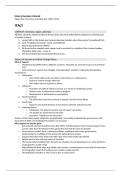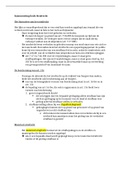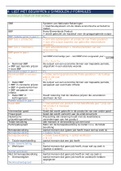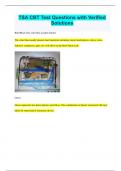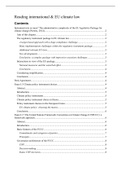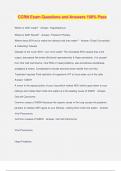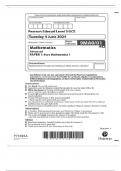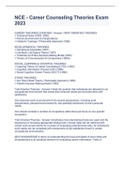Samenvatting
Summary HISTORY Paper One : The Move to Global War
- Instelling
- International Baccalaureate
This document includes all the revision material needed in line with the 2023 syllabus for History Paper One, the Move to Global War. The revision is divided into three categories, Italy, Germany, and Japan, showing the main factors that drove the countries into World War. For Italy this includes F...
[Meer zien]
